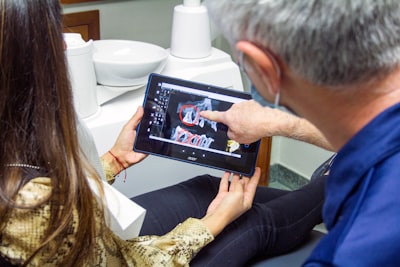Your Ultimate Electrolyte Imbalance Cheat Sheet
Do you ever feel like something's off with your body but can't quite put your finger on it? The culprit could be an electrolyte imbalance. Electrolytes, which are minerals that play a crucial role in keeping our bodies functioning properly, are essential for overall health. From regulating fluid levels to helping muscles contract, electrolytes are vital. In today's post, we'll dive into the nitty-gritty of what electrolytes are and why they matter, especially for student nurses or those in the nursing profession (though you should ALWAYS refer to your actual curriculum or professional medical training FIRST, before utilizing resources from ANY website or blog! - Important disclaimer!). We'll also cover common causes of imbalances, signs and symptoms to look out for, and when to seek medical attention. Plus, we'll share tips on how to maintain a balanced diet and lifestyle to prevent imbalances from occurring. So sit back, grab a nice drink of water (or your favorite electrolyte rich IV drink - shameless plug!) and get ready to become an electrolyte expert!
Understanding Electrolytes and Their Importance
Electrolytes play a vital role in maintaining bodily functions and overall well-being. They regulate nerve and muscle function, and imbalances can lead to health issues. Proper hydration is essential for maintaining electrolyte balance. For those in the nursing profession, it is crucial to have a deep understanding of electrolytes and their importance. As a student nurse or healthcare professional, being equipped with knowledge about electrolyte imbalances can help you provide better care for your patients.
Common Causes of Electrolyte Imbalances
Dehydration, medications, vomiting/diarrhea, kidney dysfunction, and chronic illnesses contribute to electrolyte imbalances. Nursing students can download a cheat sheet about electrolyte imbalances in PDF format.
How Does Dehydration Lead to Electrolyte Imbalance?
Dehydration can lead to electrolyte imbalance by reducing fluid volume and electrolyte concentration. Excessive sweating can deplete electrolyte levels, while inadequate water intake disrupts electrolyte balance. Dehydration impairs the body's ability to regulate electrolytes, making it a common cause of imbalance.
Recognizing the Signs and Symptoms of Electrolyte Imbalance
Signs of muscle cramps, fatigue, nausea, irregular heartbeat, and mental confusion may indicate electrolyte imbalances.
When Should You Seek Medical Attention for Electrolyte Imbalance?
If you experience severe symptoms like seizures or loss of consciousness, seek immediate medical attention. Persistent symptoms that don't improve with self-care measures should be evaluated by a healthcare professional. Severe electrolyte imbalances can be life-threatening and require urgent medical intervention. Consult a healthcare professional if your symptoms worsen or new symptoms arise, or if electrolyte imbalances persist or recur frequently.
Diagnostic Tests for Electrolyte Imbalances
Detecting electrolyte imbalances is possible through blood and urine tests, ECGs, imaging tests, and physical examination. Using the following electrolyte imbalance cheat sheet can also help to provide good steering information on what you should know!
Treatment and Management Strategies for Electrolyte Imbalances
Treatment and management strategies for electrolyte imbalances include rehydration, medication, dietary changes, lifestyle modifications, and regular monitoring.
Can Maintaining a Balanced Diet Prevent Electrolyte Imbalances?
Maintaining a balanced diet is key to preventing electrolyte imbalances. Consuming a variety of fruits and vegetables, staying hydrated with adequate water intake, and avoiding excessive sugary or processed foods can help maintain electrolyte balance. Consulting a registered dietitian can provide personalized guidance for promoting electrolyte balance through diet.
Frequently Asked Questions
What are 4 signs of an electrolyte imbalance?
Muscle cramps or weakness, fatigue or lethargy, irregular heartbeat or palpitations, and nausea, vomiting, and diarrhea may all indicate an electrolyte imbalance. Pay attention to these signs and seek medical advice if you suspect an imbalance.
What is the most serious electrolyte imbalance?
The most severe electrolyte imbalance is often hyperkalemia, characterized by high levels of potassium in the blood. Hyperkalemia can lead to muscle weakness, heart palpitations, and even cardiac arrest in severe cases. Other significant imbalances include hyponatremia, hypokalemia, and hypercalcemia. Seek medical attention if an electrolyte imbalance is suspected.
What foods and drinks can help me maintain a healthy balance of electrolytes?
To maintain a healthy balance of electrolytes, include foods high in potassium like bananas and avocados. Coconut water and sports drinks are also good sources. Additionally, incorporate leafy greens such as spinach and kale for magnesium. Limit caffeine and alcohol intake to avoid dehydration and disruption of electrolyte balance.
What are some common medical conditions that can cause an electrolyte imbalance?
Some common medical conditions that can lead to an electrolyte imbalance include chronic kidney disease, gastrointestinal disorders like vomiting and diarrhea, heart failure, liver disease, diabetes, and certain medications such as diuretics and laxatives.
How is an electrolyte imbalance diagnosed by a doctor?
To diagnose an electrolyte imbalance, a doctor may conduct blood tests to measure the levels of electrolytes in your bloodstream, including sodium, potassium, and calcium. They will also consider your symptoms and medical history to determine the underlying cause and severity of the imbalance. Treatment will depend on these factors.
Low Electrolytes Contributing to Histamine Intolerance?
Did you know that low electrolytes can contribute to histamine intolerance? Dehydration caused by imbalances in electrolyte levels can trigger the release of histamine in the body. To restore balance, try incorporating foods rich in electrolytes like bananas and spinach into your diet. If you suspect histamine intolerance, consult a healthcare professional for further evaluation and guidance.
Conclusion
In conclusion, it is crucial to be aware of the importance of electrolytes and their role in maintaining a balanced body. Dehydration, certain medications, and medical conditions can lead to electrolyte imbalances, which can have serious consequences for your health. Recognizing the signs and symptoms of electrolyte imbalances is essential, and if you experience severe symptoms, it is important to seek medical attention promptly. Diagnostic tests can help determine the specific electrolyte levels in your body and guide treatment strategies. In addition to medical interventions, maintaining a balanced diet that includes foods rich in electrolytes can also help prevent imbalances. Remember, taking care of your electrolyte balance is an essential part of maintaining good overall health.
DISCLAIMER: THIS WEBSITE DOES NOT PROVIDE MEDICAL/HEALTH ADVICE
The information, including but not limited to, text, graphics, images and other material contained on this website are for informational purposes only. No material on this site is intended to be a substitute for professional medical advice, diagnosis or treatment. Always seek the advice of your physician or other qualified health care provider with any questions you may have regarding a medical condition or treatment and before undertaking a new health care regimen, and never disregard professional medical advice or delay in seeking it because of something you have read on this website.






